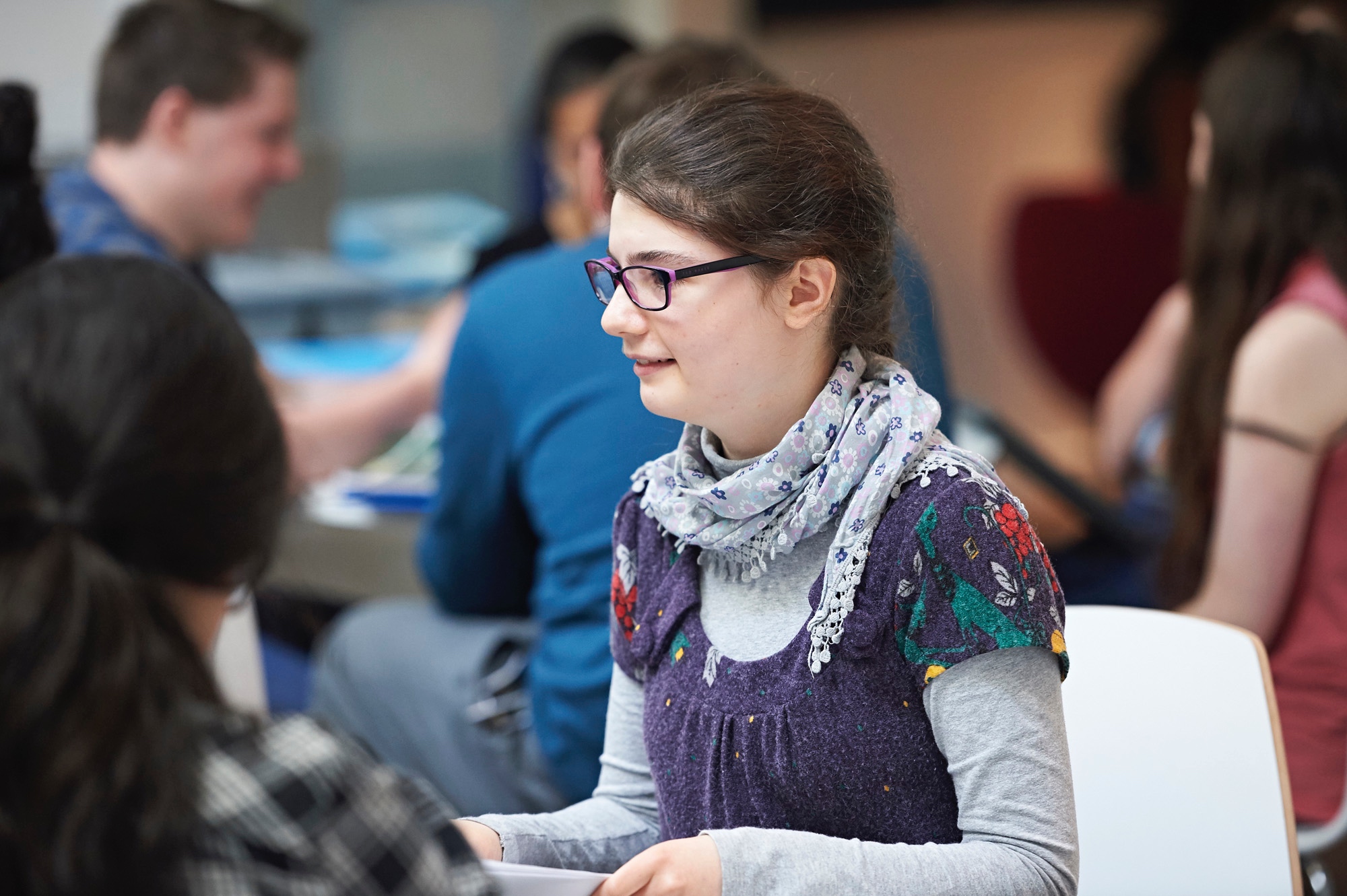
Physics
Physics explains what goes on in the universe: from subatomic particles, to galaxies containing billions of stars.
 As physicists, we ask the questions "why?" and "how?", using theory and experiment to explore the fundamental laws which underpin all natural phenomena. Through studying Physics, you'll learn about the science behind advances at the forefront of modern technology and develop your ability to solve problems.
As physicists, we ask the questions "why?" and "how?", using theory and experiment to explore the fundamental laws which underpin all natural phenomena. Through studying Physics, you'll learn about the science behind advances at the forefront of modern technology and develop your ability to solve problems.
Maths Skills
You do not need to study A Level Maths in order to take Physics (though it is beneficial if you do), but you need to be confident in your Maths skills, including algebra and geometry. You should also be aware that to study Physics or a related subject at university you would need A Level Maths.
Outside the classroom
You'll have the opportunity to test your problem solving skills in the weekly Physics or Engineerin extension club, where we discuss problems and attempt difficult questions from the Isaac Physics website. Our students also get involved in external projects, such as the Davidson Inventors Challenge, and have enjoyed success in the British Physics Olympiad and lectures at the Cavendish Laboratories and we run trips to the University of Cambridge.
Course content
-
Foundations of Physics - Physical quantities and units; Making measurements and analysing data; Nature of quantities
-
Forces and Motion - Motion; Forces in action; Work, energy and power; Materials; Newton’s laws of motion and momentum
-
Electrons, Waves and Photons - Charge and current; Energy, power and resistance; Electrical circuits; Waves, Quantum physics
-
Newtonian World and Astrophysics - Thermal physics; Circular motion; Oscillations; Gravitational fields; Astrophysics and cosmology
-
Particles and Medical Physics - Capacitors; Electric fields; Electromagnetism; Nuclear and particle physics; Medical imaging
Assessment
We study the OCR H556A course:
Two 2 hour 15 minute written papers worth 100 marks; one 1 hour 30 minute written paper worth 70 marks.
Modelling Physics: multiple choice questions; structured questions including problem solving, calculations, questions on practical work and extended response questions.
Exploring Physics: multiple choice questions; structured questions including problem solving, calculations, questions on practical work and extended response questions.
Unified Physics: structured questions including problem solving, calculations, questions on practical work and extended response questions.
Practical Endorsement
-
Reported separately from A Level performance as Pass or Ungraded
-
Minimum of 12 assessed practicals, which are key learning activities throughout the course
-
Teacher assessed and externally moderated.